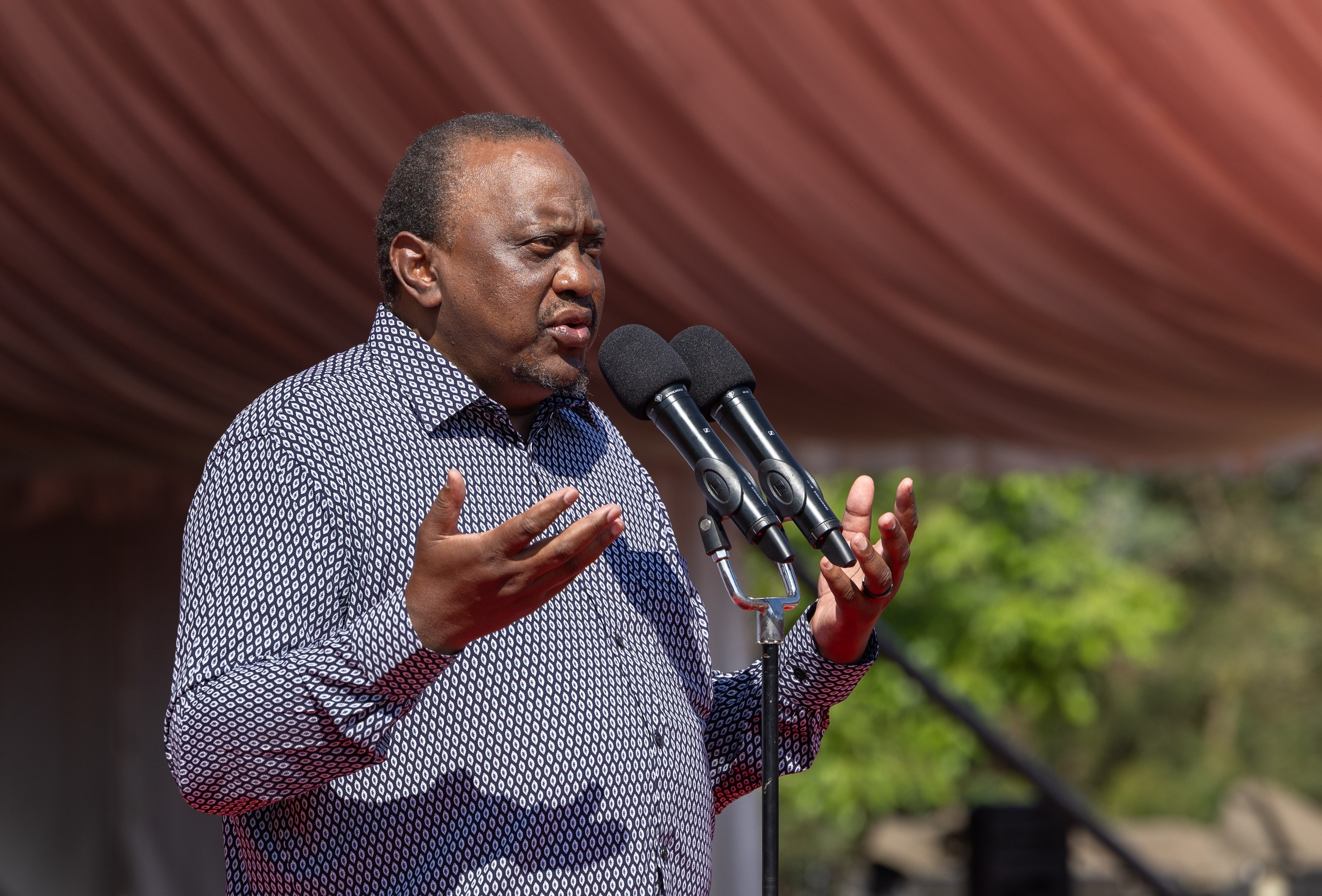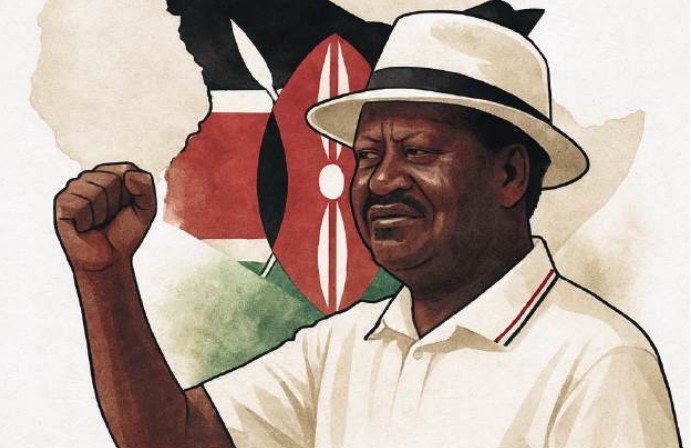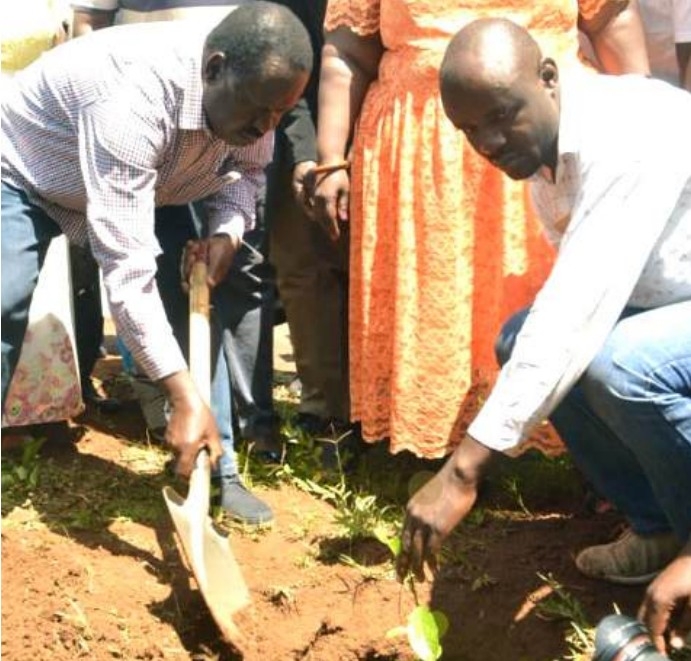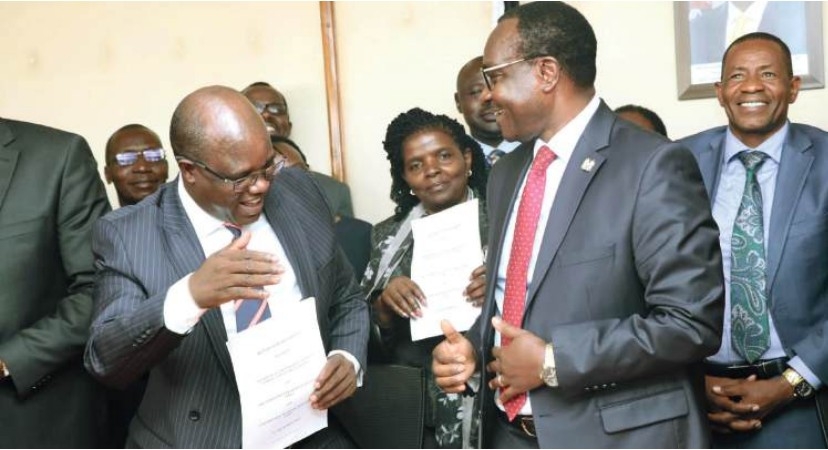Amidst the ongoing crisis in Kenya's healthcare sector, the government is actively engaged in efforts to address challenges while simultaneously striving to restore trust and stability within the system. Under the leadership of Felix Koskei, the Chief of Staff and Head of Public Service, the approach prioritises adherence to the court's directives and the guidance of key entities like the Salaries and Remuneration Commission. The Executive Office of The President's proactive role in leading mediation talks demonstrates a commendable commitment to transparent and lawful resolution of the impasse.
Central to the approach and strategy was the formation of the Whole-of-the-Nation Approach Committee; a pivotal step guided by the Employment and Labour Relations Court's orders. By establishing this committee and engaging in the court-approved mediation, Koskei demonstrated a proactive stance in addressing the longstanding issues confronting healthcare professionals. His emphasis on lawful processes not only instills confidence in the negotiation process but also sets a precedent for future engagements, fostering an environment of trust and accountability.
The current government is showcasing a commitment to comprehensive resolution and respect for the equitable allocation of responsibilities between national and county governments. Through these efforts, Koskei alongside the Cabinet Secretary for Health and Cabinet Secretary for Public Service aim to ensure that all concerns are meticulously addressed, laying the groundwork for sustainable solutions and lasting reforms in Kenya's healthcare landscape. It is growingly becoming clear to Kenyans that Koskei is a man dedicated to tangible outcomes and devotedly working to ensure that President Ruto’s government is effective in serving Kenyans.
In the current scenario, the government is not just calling the health workers back to the negotiating table empty-handed but has already moved to facilitate the payment of salary arrears and budgetary support for medical student interns of 2.4 billion shillings underscore a commitment to addressing immediate concerns while laying the groundwork for long-term sectorial improvement. “It is in this spirit that the leadership of the KMPDU is urged to comply with its obligations under the court orders by immediately suspending the ongoing industrial action”, Koskei said in a statement on April 3rd 2024.
In regimes that went before President William Ruto’s, industrial action matters were simply left to the relevant ministry and were therefore inconclusively tackled, but Koskei is taking the bull by the horns. There is grave need to solve the impasse quickly and it is encouraging that the government is demonstrating empathy as it is transparently and devotedly working to ensure these challenges that curtail public health and safety of Kenyans are addressed in a sustainable manner. Koskei's call for stakeholder compliance with the court's orders underscores the government’s unwavering commitment to upholding the rule of law and fostering a culture of accountability. The Head of Public Service approach since taking office has been engaging stakeholders and finding ways and means of ensuring effectiveness in government affairs. He has been firm against corruption and poor work ethic in the civil service.
The Kenya Medical Practitioners Pharmacists and Dentists Union has accentuated nineteen critical issues within the healthcare sector, prompting their demand for action from the government. These concerns include the failure to honor court decisions regarding salary arrears from the 2017-2021 Collective Bargaining Agreement (CBA), as well as delays and mismanagement in the internship program, hindering the professional growth of interns. Additionally, the absence of a training budget for postgraduate medical officers since 2018 has stunted their development, alongside the necessity for a memorandum on minimum health services during industrial actions to ensure essential medical care provision. Financial stability for healthcare workers is also a pressing issue due to recurrent salary delays, non-remittance of deductions, and loan repayment failures.
Moreover, incomplete negotiation of Collective Bargaining Agreements (CBAs), delays in issuing letters of no objection for CBA registrations by the Salaries and Remuneration Commission (SRC), and the failure of certain institutions to sign CBAs have further compounded the challenges. Inadequate provision of Comprehensive Medical Insurance cover, failure to promote eligible doctors, and non-compliance with staffing norms and standards by the government have also contributed to the dissatisfaction. The absence of benefits such as House Mortgage and Car Loans, failure to formalize agreements with institutions like Nairobi Hospital, and the need to establish an Inter-Governmental Taskforce on Health underscore the multifaceted nature of the issues. Ultimately, the KMPDU seeks to ensure job stability for healthcare workers through permanent and pensionable terms of engagement.
Koskei's leadership approach embodies a commitment to restoring trust and stability in Kenya's healthcare sector. Through adherence to legal processes, meticulous mediation efforts, and a focus on tangible outcomes, Koskei sets a precedent for collaborative engagement and constructive dialogue, laying the foundation for enduring reforms that prioritize the health and well-being of all Kenyans and the efficiency and effectiveness of other sectors of the Kenya government. It is clear that the matters raised by KPMDU cannot be addressed all at once. There clearly is goodwill from the government and Kenyans must be hoping for a quick resolution to the standoff where the board calls off the strike.
Since assuming office, Koskei has been steadfast in his efforts to enhance government service delivery, undertaking a range of actions and engaging with diverse groups. He has implemented measures to combat corruption, issuing directives for the suspension or dismissal of corrupt officials and maintaining a firm stance against any form of malpractice. Holding special meetings with Principal Secretaries and Accounting Officers, Koskei has focused on closing loopholes susceptible to corruption and streamlining service delivery procedures. Additionally, he has convened discussions with leaders of government agencies and introduced innovative approaches such as the Zero Fault Audit to reinforce anti-corruption measures in procurement and related processes. Koskei has also initiated dialogues with the leadership of the Kenya Police Force, persistently advocating for radical reforms to benefit both Kenyan citizens and the police force itself.
Political commentator














![[PHOTOS] How ODM@20 dinner went down](/_next/image?url=https%3A%2F%2Fcdn.radioafrica.digital%2Fimage%2F2025%2F11%2F99d04439-7d94-4ec5-8e18-899441a55b21.jpg&w=3840&q=100)
